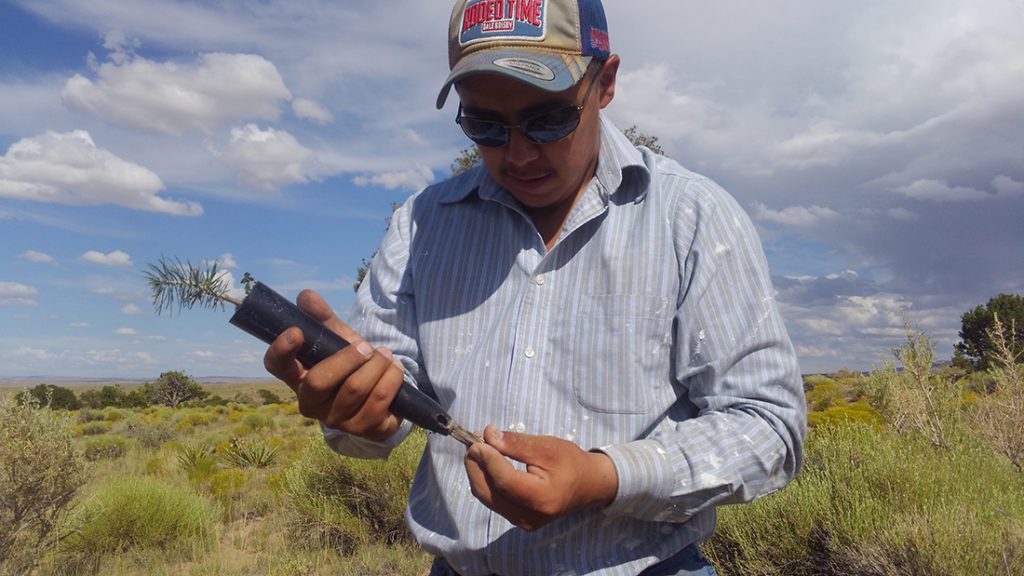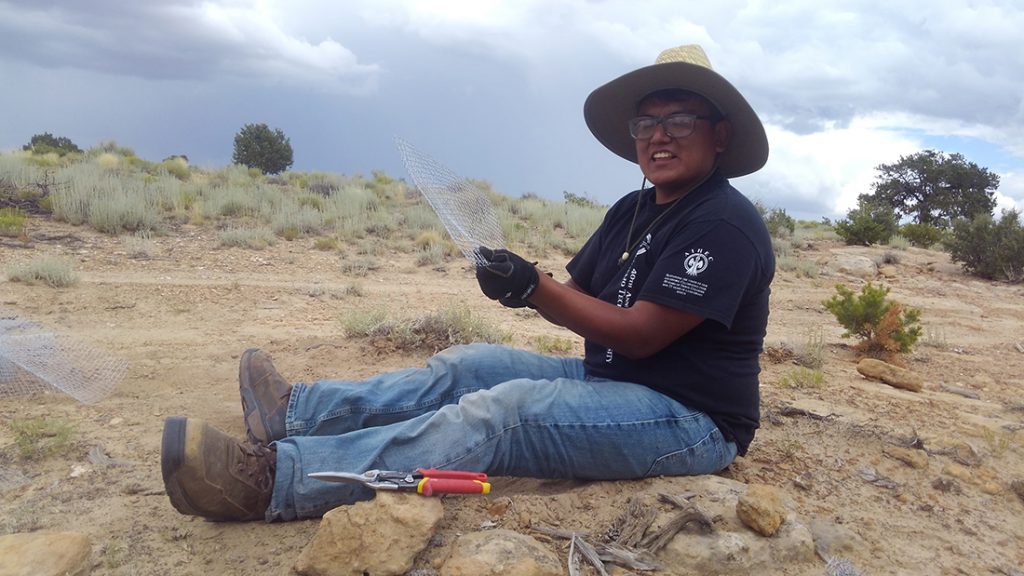The Center for Adaptable Western Landscapes (CAWL) at NAU and the Environmental Science and Natural Resources program at Navajo Technical University received a nearly $3 million National Science Foundation (NSF) grant to address critical questions about climate vulnerability in the American Southwest while increasing diversity among STEM researchers.
Research and Mentoring for Postbaccalaureates, or RaMP, is a four-year effort to provide post-baccalaureate research experiences for students from communities that are underrepresented in biological sciences, with a particular emphasis on Indigenous and Latiné students. This emphasis is important in the Southwest, which is home to many Native nations and Hispanic families.
“The project team is tremendously excited about the grant and its potential to train a new generation of scientists that is reflective of the peoples of the Southwest,” said Amy Whipple, associate professor of biological sciences and the principal investigator for the grant. “We are also eager to work intensively with diverse mentors from tribes, agencies and the private sector as we learn to set research goals as a team.”
“This program is exciting as it builds on our successes at Navajo Technical University in training Indigenous students via hands-on activities grounded in their local knowledge,” co-PI Steve Chischilly said.

Studying the dramatic effects of climate change on the landscape of the southwestern U.S.
As the climate changes, so do the landscapes of the Southwest, which are experiencing increased fires and floods and hotter, drier summers. RaMP mentees will conduct research that responds to these changes and is developed with input from local communities and stakeholders—the same groups from which students will be recruited.
Specifically, research projects will be geared toward developing techniques to slow the loss of foundation species, preserve species of concern and protect culturally important landscape-based practices and food sources. Although research projects will change year over year, some subthemes for the first year include:
- Examining the effects of fire on the Emery oak populations and acorn harvest by the Western Apache.
- Restoring biocrust to reduce erosion, dust and disease impacts on plants and animals.
- Assessing the potential to restore pinyon pine nut harvest for humans and wildlife.
Every project will unite biological sciences with an understanding of Indigenous concerns to address environmental problems. The project emphasizes the importance of including stakeholder communities that are experiencing some of the most severe effects of climate change.
Mentees will be recruited from tribal colleges and Hispanic Serving Institutions. They will receive a one-year stipend to cover living expenses, a laptop budget and travel expenses for field research, conferences and workshops. RaMP will provide hands-on research and training opportunities that are supported by mentors who are scientists, local and Indigenous representatives and natural resource professionals.
NAU’s co-PIs spoke to the importance of this program:
- “RaMP was intentionally designed to provide a reciprocal exchange of knowledge between mentees and the people and organizations involved in the project,” said Anita Antoninka, assistant research professor in the School of Forestry.
- “Better outcomes rest on integrating Indigenous knowledge and perspectives into research and management efforts while also increasing the relevance of science to Indigenous people,” said Sara Souther, assistant professor in the School of Earth and Sustainability.
- “The RaMP program will enable NAU to provide multifaceted and personalized training to students who have been largely excluded from careers in the biological sciences,” noted Rebecca Best, associate professor in the School of Earth and Sustainability.
- “STEM careers can not only secure a bright future for the individual, but also provide essential skills to communities trying to address the fire, flooding and loss of species caused by climate change,” said Catherine Propper, professor of biology.
Currently, the RaMP project team is working on outreach efforts to attract participants to the program, visiting conferences and classrooms to make potential candidates aware of the program. Interested students are encouraged to apply before the Feb. 10 deadline. More information is available from Amy.Whipple@nau.edu or Anita.Antoninka@nau.edu.



